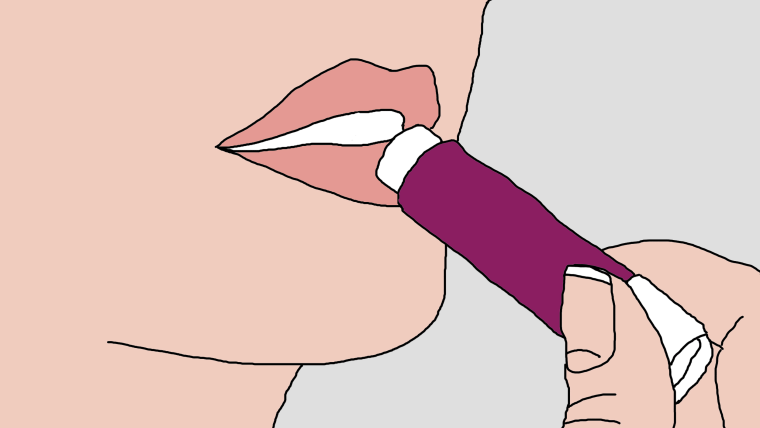It's that time of the year when it seems like everyone you know has had a cold, flu or some other nasty bug.
After being sick, we'll do anything to avoid getting reinfected. So, does that mean we need to toss out the toothbrush? What else do we need to ditch to stay healthy?
Luckily, you can't be reinfected by the same cold virus, but there are some 200 different strains circulating at any given time.
“You develop antibodies for each of the viruses you are exposed to,” said Dr. Natalie Azar, NBC medical contributor. “If you are having a cold that feels like it just doesn’t quit, it is probably a different cold virus.”
Charles Gerba, a professor of microbiology and environmental sciences at the University of Arizona, agreed.
“It is hard to re-infect yourself,” he said.
RELATED: Symptom tracker: Cold, flu — or something else?
After being exposed to a virus, the body creates antibodies to fight off the virus. When you recover from that particular virus, your body no longer remains susceptible to that strain.
As for re-exposure, that virus on the toothbrush, lip balm, mascara, sheets or towels won't make you sick again. But if other viruses and bacteria linger on these items, a new illness can develop.
Flu, staph, strep, e-coli, and yeast commonly live on toothbrushes said Dr. Heather Rosen, medical director of UPMC North Huntington Urgent Care.
“There are so many bacteria that can reside on a toothbrush; therefore, it is always best to get rid of it once you have been infected with some sort of viral or bacterial illness,” she said.
And, replacing your toothbrush after illness reduces the chance that your nasty brush spreads its germs to anyone else’s nearby brushes.
RELATED: Home flu remedies that really work (and some that don't)
Yuck factor
On the other side, Gerba says not to worry too much about toothbrushes spreading illness.
“It is just a yuck factor,” he said.
However, it is generally recommended to change your toothbrush every three months. And keep it away from the toilet, because airborne droplets released from flushing settle on toothbrushes, Gerba advised.
And, never share toothbrushes.
“You can catch infections like a cold, bloodborne disease [think Hepatitis B or C], or even bacterial infections if you take a chance and use someone else’s toothbrush,” Rosen said.
RELATED: The truth about 6 common cold remedies
How about that lip balm?
When we're sick and dehydrated, lip balm becomes our next best friend — after nasal tissue and a cup of hot green tea.
Fortunately, lipstick, lip balms and mascara often contain anti-microbial ingredients, reducing the number of germs flourishing in them, said Gerba.
But, don't share makeup! People can still get sick if they borrow someone else's make-up; it’s an easy way to contract oral herpes or pink eye, says Rosen.

It's not about you
When it comes spreading colds and influenza, bar soap and towels can be germ factories. After rubbing hands on the soap, the germs remain on the bar, said Gerba. If people fail to sufficiently wash the germs off their hands, the leftovers may cling to hand towels.
“They can be a conduit for transmitting germs,” said Gerba. “Change those towels every two or three days.”
Sheets can also harbor germs, which could infect a healthy bed partner if they remain unwashed after illness.

“Viruses can survive much, much shorter periods of time on a porous surface,” says Azar. But they can linger up to 24 hours on hard surfaces, such as counters, tables, computer keyboards, and remote controls.
It doesn't take much to clean away most germs, fortunately. Azar suggests thoroughly cleaning the house, sheets and towels after illness “if you want to be kind to other people. It’s not about you — it is about other people.”